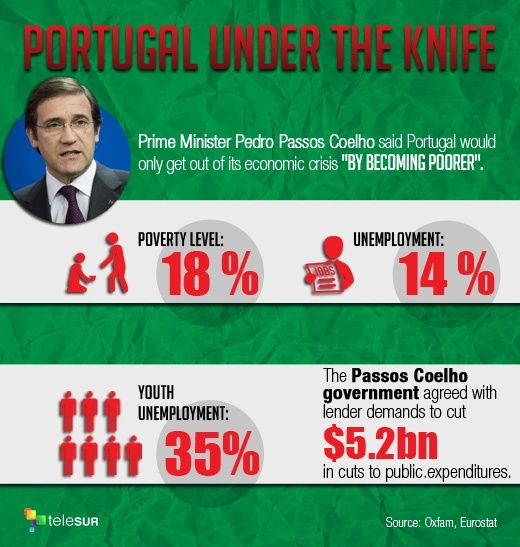Voting centers in the Iberian country of Portugal opened Sunday at 8 a.m. local time in a close election where as much as 27 percent of the population was still undecided before the vote.
Voters are set to choose their representatives in the 230-seat Assembly. According to parliamentary tradition, the party that wins a plurality of seats is invited to form the government by the president.
The latest polls, released on Friday, gave Prime Minister Pedro Passos Coelho's ruling coalition a lead of between five and 12 points over center-left Socialist opponent Antonio Costa. Although Passos Coelho appears poised to win, he could fall short of a majority in the parliament.
RELATED: The Who's Who of Portugal's General Election
Undecided voters are set to play a crucial role. A poll by local news agency Publico found that 20 percent of the electorate was still undecided, meanwhile the state-owned RTP station said undecided voters constituted 27 percent of the electorate.
There also could be a high abstention rate during the election, which would likely favor the ruling coalition.
Opposition leader Costa has called on the public to turn up at the ballot box.
"It is fundamental that every one of us does not waste the opportunity to finally, after four years, use our vote to change the government," Costa said at his last campaign event.
RELATED: Continuity over Change: Portugal Ahead of the Elections
Like Greece, Portugal has been forced to endure painful austerity measures at the hands of European financial institutions and Costa has centered his campaign around his opposition to these measures.
However the capitulation by the Syriza government in Greece was seen by some Portuguese voters as proof that in the Eurozone there is no alternative to austerity, damaging Costa's chances at winning the election.
Should no party win a majority of seats, the winning party will be forced to rule with a minority government, which have generally been unstable in the history of Portuguese politics. Costa has ruled out forming a coalition with Passos Coelho.
Adelino Maltez, a political analyst at the Lisbon Technical University, said "there is a possibility of confusion on Sunday night," if there is a very close result that gives no strong victory to any side.
